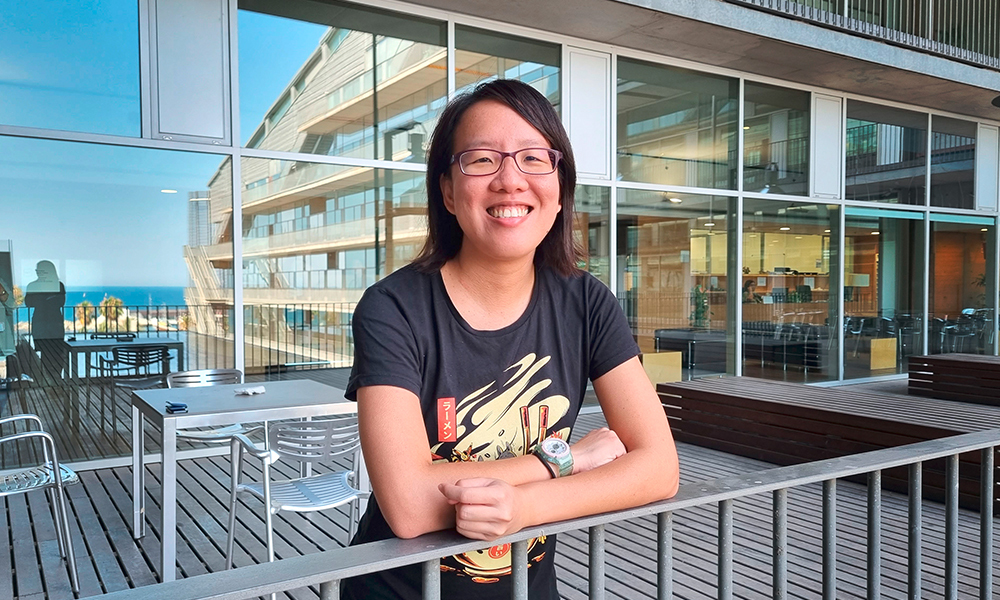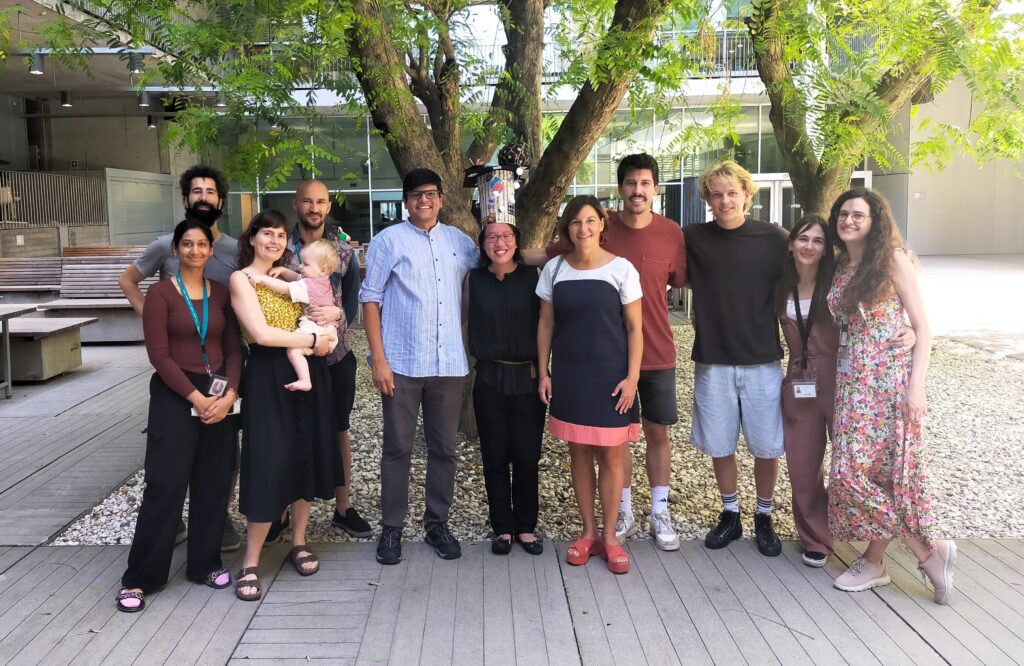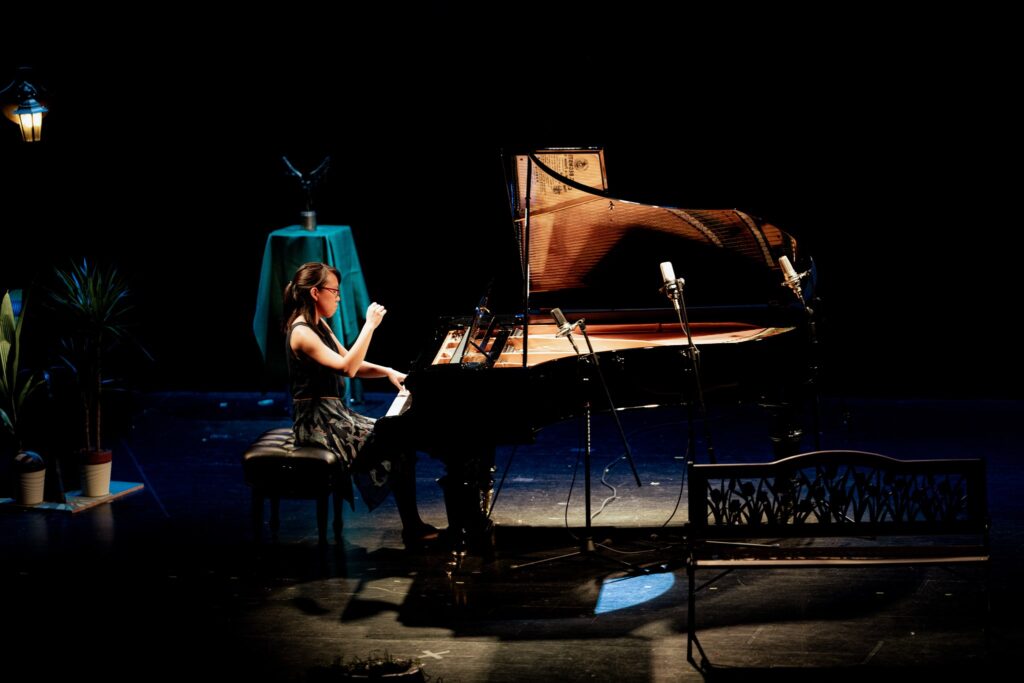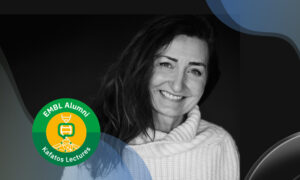
We are EMBL: Jia Le Lim on zebrafish, temperature, and Johann Sebastian Bach
Postdoctoral fellow Jia Le Lim talks about contributing back to society through science, finding inspiration in the way birds fly in the sky, and winning a recent international piano competition

Music and science are truly intertwined for Jia Le Lim. She recently defended her PhD thesis at the Trivedi Group at EMBL Barcelona, focusing on how temperature affects the development of zebrafish embryos. Additionally, she is the heart and soul of music at EMBL Barcelona. She founded the Music and Concert Club at the site, joined the PRBB orchestra, and recently won an international piano competition for amateurs in Poland. We spoke with her about her research, her love for music, and her sources of inspiration.
What do you think is the most exciting thing about your work?
The fact that I am probably the first person seeing specific biological events. I look at the effects of temperature on the early development of zebrafish using mRNA and protein labelling together with advanced microscopy techniques. Past studies have looked at how zebrafish embryos respond to temperature in terms of their overall shape and survival rates. However, few have looked at the underlying biological processes happening in the embryo and how these events, such as cell division or cell migration, may alter with fluctuating temperatures. Every experiment is hence exciting for me, as no one has tried it before and no one has any idea of what I may see.
How do you see your work evolving over the next few years?
Climate change has fueled the rising curiosity within the scientific community on the impact of temperature on biological systems. We now have the experimental techniques and microscopes required to look at organ and tissue shape changes and flows in the embryo in its native state. Such technological advances will certainly drive and answer more interesting molecular biological questions in the field of thermal biology.
How important do you think collaboration is to achieving your goals?
Without collaboration, none of my current research results would have been possible. My colleagues in the lab help me with my early timepoints, such that together, we can cover sufficient timepoints for my experiments. I also work with the Torres-Sánchez Group next door on creating a theoretical model to explain my experiments. With the proteomics facility at the CRG and UPF, we characterised protein levels in the zebrafish under different temperatures, with the results being analysed by colleagues at EMBL Heidelberg, Germany. Meanwhile, my image analysis collaborators come from Erlangen, Germany, and Santa Barbara, USA, while recently, I went to Dresden, Germany, to perform laser cuts in zebrafish with Alison Kickuth in Brugués lab at the Max Planck Institute of Molecular Cell Biology and Genetics (MPI-CBG).

What do you do in your spare time?
Practise the piano, play board games, assemble jigsaw puzzles, go to concerts, dance at music festivals, and sleep!
You have recently won a piano competition for amateurs in Poland. Congratulations! Could you tell us about your passion for music and how this relates to your scientific work?
When in the lab, I dive into the universe of zebrafish, imaging migrating and diving cells in the embryo as it develops. When playing the piano, I get transported to different universes, from being in the eye of a storm to the dance of skeletons during Halloween. With both science and music, I explore different aspects of nature; I uncover how nature works in science while I discover how nature feels in music.
Where do you find inspiration for solving problems at work?
I find inspiration everywhere around me. In the way birds fly in the sky, in the patterns of leaves in nature, and in the conductor who holds the orchestra together.
At what age did you decide you wanted to be a scientist, and what triggered that?
I decided to become a scientist after my Bachelor’s degree in Biology, at the age of 21. I wanted to be able to contribute back to society, no matter how insignificant my efforts may be. I thought what better way to do this than to be in research, to provide that insight into fundamental science questions that others may build upon and that may someday lead to a new invention or a Nobel Prize?
If you could listen to only one composer for the rest of your life, who would it be?
Johann Sebastian Bach, for he is the master of intricate harmonies and interweaving melodies.



